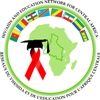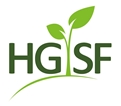Partnership for Child Development

PCD is committed to improving the education, health and nutrition of school-age children and youth in low income countries. Based within the Department of Infectious Disease Epidemiology at London’s Imperial College PCD helps countries and international agencies turn the findings of evidence based research into national interventions that benefit millions of children around the world.
The network's objectives are to accelerate the education sector's response to HIV&AIDS in the ECOWAS Region and Mauritania. It aims to do this through facilitating stronger and better quality actions at the national levels through the creation of a framework to share information and experiences, proposition of guidelines and the promotion of good practices.

This network is formed from 12 Minister of Education in Eastern and Southern Africa recognizing the need to accelerate the education sectors' response to HIV&AIDS in the region through stronger and better quality actions at the national level. The network facilitates and promotes the sharing of information, expertise and proposes guidelines for the promotion of good practices to support the education sector's response to the effects of HIV&AIDS.

Grounded in the practical expereinces of leading international agencies FRESH's objectives is to identify and promote a cost effective activities which can form the basis for intensified and joint action to make schools healthy for children and so contribute to the development of child-friendly schools. This FRESH Start approach was launched at the World Education Forum in Senegal, April 2000.

Home Grown School Feeding has been described as a win-win for both farmers and children alike. The initiative sees children receive free school meals which are sourced from local farmers, thus it encourages educational achievement, school participation at the same time as promoting the livelihoods of smallholder farmers. HGSF is highlighted in the New Partnership for Africa’s Development’s (NEPAD) vision for nationally owned, sustainable programmes aimed at improving the food security of smallholder farmers, many of whom are women.
All of the listed sites are administered by Partnership for Child Development.

